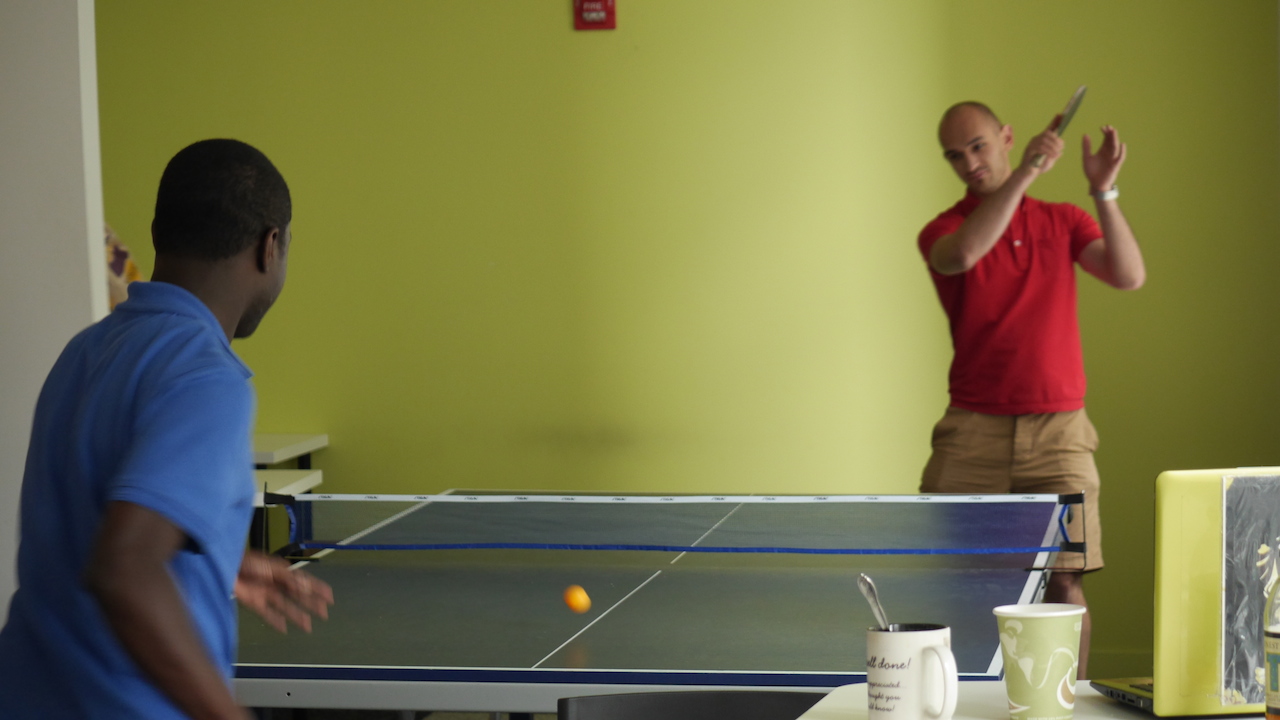The time for introductions is over at Data Science for Social Good. Joined at the start of the week by a smattering of late-arriving fellows, the project teams are now at full strength, and they spent the week narrowing down the specific goals for their work this summer. By the end of the week, project plans were due to sketch out the schedule and the goals for the nine weeks remaining, and teams continued interrogating the data and asking increasingly probing questions of their partners. Daniel X. O’Neil from Smart Chicago Collaborative dropped by as our Friday Speaker with a necessary reminder about the humans behind the data, encouraging fellows to bolster their research with old-fashioned fieldwork and talking to people. Oh, and we finally have our ping-pong table.
Before the weekend starts, we’re pleased to announce the specifics of our work with three more exciting project partners
City of Memphis – Targeted Urban Investments to Improve Future Economic Outcomes
Cities must work within a limited budget, balancing revenues (taxes and fees) with the ability to deliver services and maintain infrastructure. Since 1970, the population of Memphis, Tennessee has increased by four percent while the geographical area has increased by 55 percent. The city would like to use data to make better policy and investment decisions around economic development and more productive delivery of services.
With data on city revenue and spending, we will help the City of Memphis develop a new system for informing policy and investment decisions. Our goal is to help the city map the productivity of its tax base and the related costs to deliver services. This will assist the city in understanding the return on past and future investments and in identifying more productive approaches to delivering services. If successful, the system could be implemented in cities across the United States and around the world to help governments get the most value out of their budget and find the best approaches for revitalizing blighted areas.
Mentor: Tom Plagge
Fellows: Alejandra Caro, Matt Conway, Ben Green, Robert Manduca
Health Leads – Improving Social Services Interactions
Medicine by itself cannot always provide us with health. If a sick child lives in a mold-infested house, asthma medication will only do so much. Medical issues are caused, prolonged, or exacerbated by lack of access to basic human needs such as food, transportation, or social services.
Health Leads envisions a healthcare system in which all patients’ basic resource needs are addressed as a standard part of quality care. In the clinics where they operate, physicians and other providers can prescribe food, heat, and other basic resources their patients need to be healthy, alongside prescriptions for medication. Health Leads advocates then help families navigate the complex social services landscape and provide ongoing support with frequent follow-up calls, text messages, emails, and research.
However, maintaining relationships with patients who live in an unstable environment presents a unique challenge for Health Leads. This summer, we will help them improve sustained engagement, determining why some clients are actively engaged, why others disengage, and what effective strategies Health Leads can pursue. Using the organization’s client engagement data, service provider data, and patient demographics, the DSSG team will find effective ways to reduce the dropout rate and increase responsiveness, exploring different methods of communication. By discovering strategies to improve patient responsiveness, the project will help Health Leads advocates strengthen their relationship with clients and ensure that the most needed resources are effectively delivered.
Mentor: Young-Jin Kim
Fellows: Chris Bopp, Cindy Chen, Isaac McCreery, Carl Shan
Chicago Alliance to End Homelessness – Effectiveness of Intervention Strategies on the Homeless
As many as 750,000 adults and children are homeless in the United States, and thousands spend any given night without a safe place to sleep in Chicago alone. To combat these grim statistics, Chicago created Plan 2.0 – A Home for Everyone, a progressive seven-year action plan that serves as the blueprint toward the vision of a city in which everyone has a home. The Chicago Alliance to End Homelessness manages the implementation of this plan in partnership with Chicago’s Department of Family and Support Services, and serves as the backbone organization for Chicago’s homeless services system, bringing together the essential components for creating housing solutions in Chicago.
DSSG Fellows will investigate the housing interventions prescribed by Plan 2.0, with special attention given to emergency shelter, transitional housing, and permanent housing interventions. The team will examine the effectiveness of these strategies for different demographic and geographic targets, supporting the goal of ensuring that all individuals and families in Chicago have access to safe, quality affordable housing, as well as the resources and support needed to ensure housing stability.
Mentor: Young-Jin Kim
Fellows: Chris Bopp, Cindy Chen, Isaac McCreery, Carl Shan



